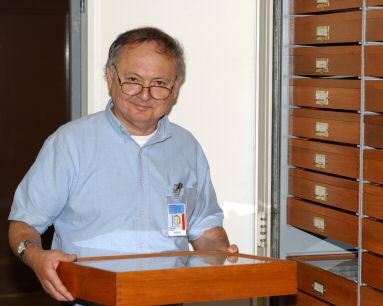| PBI Role | Professional Experience | Personal Statement |
|---|---|---|
|
Senior Investigator Tom Henry will work cooperatively with other senior scientists, postdocs, and students primarily on New World orthotylines and phylines. His current research relevant to PBI focuses on a monographic treatment of the orthotyline tribe Ceratocapsini, revisions of the Playtscytus genus group (Phylinae), the Falconia genus group (Orthotylinae), and the genus Parthenicus, as well as other miscellaneous studies. |
Tom's interest in natural history and insects goes back to his early childhood. His interest in plant bugs developed at the Pennsylvania Department of Agriculture over a period of eight years while working with colleague, Dr. Al Wheeler, Jr., on ornamental insects. After completing his Master's Degree at Penn State University in 1980, he moved to Washington, D. C., where he accepted a position with the Systematic Entomology Laboratory, Agricultural Research Service, U. S. Department of Agriculture, housed in the National Museum of Natural History. Since then Tom completed his Ph.D at the University of Maryland, and has focused his research on Miridae of the Western Hemisphere. He has conducted extensive fieldwork in North and South America and the West Indies, as well Australia, India, Pakistan, and Sri Lanka. He co-edited and co-authored the Catalog of the Heteroptera of Canada and the Continental United States, and has published widely on Heteroptera, especially the Berytidae, Lygaeoidea, and Miridae. |
I look forward to the incredible challenges we face on this PBI project and to working with the outstanding team of heteropterists assembled by Toby Schuh and Gerry Cassis to meet them. It is a rare thing in the natural sciences to have such complete support for so monumental a task. Even so, it will not be easy to accomplish. If any group can succeed, however, it will be ours. Check back with us in 2008. |




